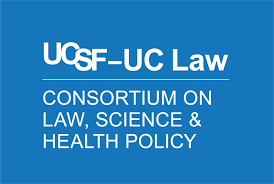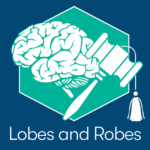
Neurolaw
What is Neurolaw?
Law and neuroscience, or “neurolaw”, is an emerging field of research and applied practice concerning the application of neuroscience in the law, as as well as the legal regulation of neuroscience and neurotechnology. Neuroscientific evidence has been used in thousands of legal cases in both criminal and civil law. Litigants, lawyers, and judges have encountered neuroscience in issues concerning brain injury litigation, social security disability coverage, criminal mental states, the insanity defense, criminal sentencing of youth and young adults, eyewitness memory, brain-based lie detection, and much more. Brain images have been proffered in courts across the world, sometimes having a significant influence on case outcomes. From a regulatory standpoint, agencies such as the Food and Drug Administration regularly update guidance related to the development of drugs and devices aimed to modulate brain function. Those working in the field of neurolaw may be practicing attorneys, legal researchers, and policymakers crafting new laws guided by neuroscience insights. Neurolaw courses are being offered at an increasing number of schools, and if your school doesn’t offer such a course maybe you should create one!
Take a look at the videos below to learn more about neurolaw:
What are the pathways to pursuing a career in neurolaw?
Law and neuroscience is still an emerging field, and thus there are not established pathways for careers in neurolaw.
For a variety of reasons there’s not a true “do it all at once” path in which one is both a neuroscientist and a legal practitioner or scholar. Rather, there are three groups that work together: (a) scientists who are committed to understanding and investigating the social/legal/economic/etc implications of their work, (b) lawyers/judges/legal thinkers/policymakers who are committed to exploring how science (including neuroscience) can inform and improve their work, and (c) leaders (with training in one or both disciplines) who head up intermediary bridging organizations to facilitate interdisciplinary conversation.
So at some point you will need to decide whether you want to be a “practicing neuroscientist who knows a lot about what goes on outside the lab”, a “practicing lawyer/policymaker who knows a lot about what goes on inside a lab”, or someone who steps outside both of those roles into an outside group (e.g. AAAS.) They are all good paths—but they are different ones that typically require different training.
The Neuroscientist Track
If you want to have policy and legal influence as a scientist, become the most impressive scientist you can become. This can be in a lab that does any variety of research, even if that research seems more basic than applied. If you go down that lab path, you will want to find a lab that is run by a PI who values the “life outside the lab.” For instance, even if that PI is doing basic science with mice, if that PI encourages social commentaries or partnerships with outside organizations, that will be a good environment. Note, however, that many PIs discourage such work because it takes away from what they view as the core mission of their Lab: to do great lab science, get big research grants, publish in the best science outlets, and so forth. So speak to the PI about their interests before joining.In terms of specific labs that might be of interest, there is a lot of work that is potentially legally relevant, even if the lab web site doesn’t frame it that way. Legally relevant topics include: memory, decision-making, emotion, aging brains, adolescent brains, and much more. For example, some neuroscientists who specialize in the neurobiology of memory have testified in legal cases and contributed to policy reform efforts.
Lawyer/Policymaker Track
This one is fairly straightforward, as you would pick a discipline (such as law, business, public policy), obtain the requisite advanced degree (e.g. JD, MBA), and then practice. The difference is that –through a combination of your undergraduate degree, and your additional reading and coursework—you will have the lens of neuroscience to your advantage. This is one of the most common tracks, e.g. working as an intellectual property lawyer who has a science background. There are many other examples. For instance, many attorneys who work in the juvenile justice system have found it advantageous to utilize brain science in criminal sentencing. Attorneys who litigate personal injury cases have also found it valuable to collaborate with brain scientists and clinicians when litigating brain injury cases.
The “Middle Road” Track
You could take a lot of different routes to the middle ground, e.g. working in a policy context, doing one of the above paths to start with and then transitioning to something non-traditional, etc.
Like other NeuroX fields, the secret to success in neurolaw is navigating the very different worlds of law and science. Collaboration and the ability to see connections between multiple disciplines is important.
Education in Neurolaw:
Most careers in law and neuroscience require an advanced degree such as a JD, MA, or PhD. Sometimes individuals will combine these and train in both law and science. Neurolaw careers include: practicing lawyers, consultants, neuroscience researchers, government experts (e.g. FDA), law professors, and entrepreneurs.
Most working in neurolaw hold a law degree. Whether you will be a practicing attorney (and perhaps one day a judge), a law professor, or someone working at the intersection of law and policy, legal training is absolutely essential. At present you will find that law and neuroscience courses are only offered at a relatively small number of schools, but that may change in the future and no matter where you go to law school you can utilize the resources below to learn more. A compilation of neurolaw materials is available in the Law & Neuroscience casebook published by Aspen Press, and Chapter 1 along with the Table of Contents is available free online.
- Undergraduate: While many students who pursue law and neuroscience study neuroscience as an undergraduate, you can follow a path in neurolaw with any undergraduate major so long as it allows you to find a strong graduate program.
- Graduate: The key to a neurolaw career is your graduate degree. There are a few joint degree programs, but you don’t necessarily need a joint degree depending on what route you wish to pursue. Your likely options are a JD, a PhD, or Masters in neuroscience, or a PhD or Masters in an allied field such as philosophy, public health, and so on. Which graduate program is right for you? It depends on which career track you want to pursue. To learn more, watch the career path interviews on this site and talk to mentors.
Resources and programs related to neurolaw:

Center for Law, Brain & Behavior at Mass General Hospital and Harvard
The Center for Law, Brain & Behavior at Mass General Hospital and Harvard is the leading center for applying neuroscience in the law. CLBB regularly hires summer research assistants, and there are other ways to get involved in CLBB programs.
UCSF–UC Law Consortium on Law, Science & Health Policy
The UCSF–UC Law Consortium on Law, Science, Health Policy focuses on law and policy to address issues of health and well-being. The consortium includes students, faculty, and staff, as well as patients, clients, and community partners. They host regular events and also publish a newsletter that may be of interest for those in this field.




